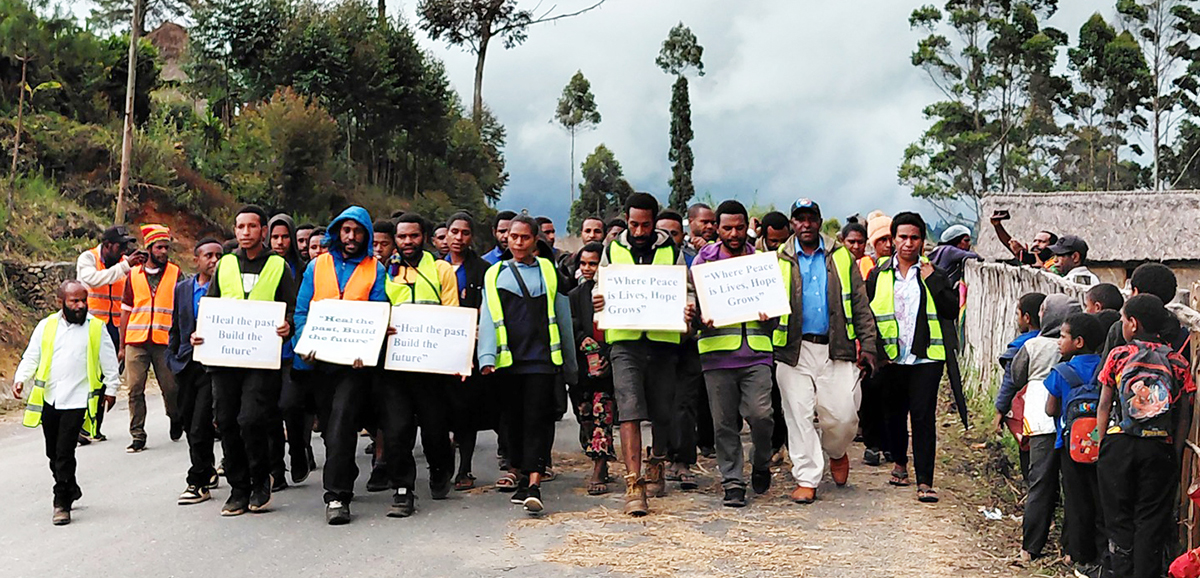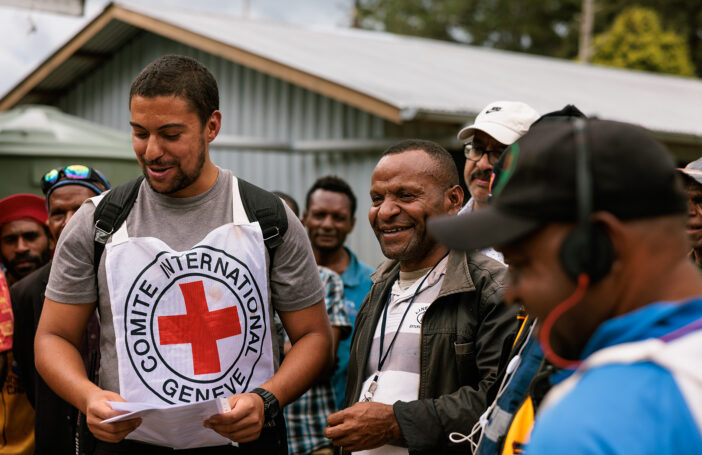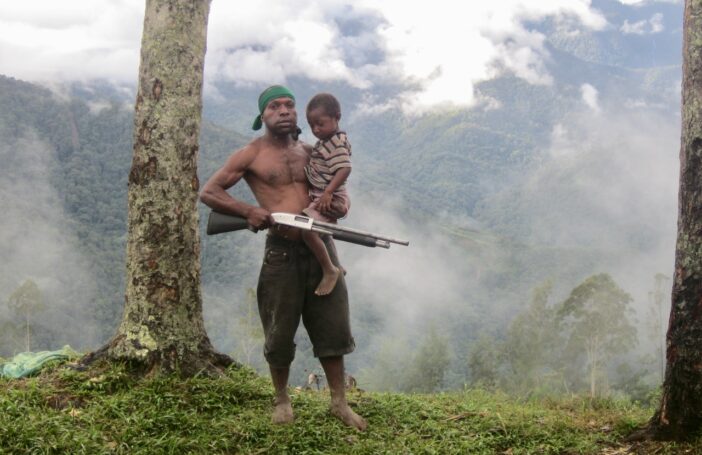If history teaches us anything, it is that peace is fragile and contingent. Like any healthy and productive garden, it needs constant tending. The renewed outbreak of fighting in Wapenamanda in Enga Province in August, following the hard-won peace symbolised by the signing of the Peace Accords at the Airways hotel in Port Moresby in July 2024, prompts us to ask: was there sufficient tending of the peace? What could be done differently?
In this blog we briefly sketch out some ideas to answer these questions.
We start by noting the three-stage framework we have proposed elsewhere: quick intervention to prevent escalation through early warning and rapid response systems; slow peacebuilding focused on ongoing relationship repair and addressing structural issues; and community wellness initiatives to strengthen community governance, economic welfare and cohesion.
All three stages are integral to successful peacebuilding and all three require coalitions of state and non-state actors working together.
The killings and destruction occurring in Enga over recent days and weeks points to the importance of slow peacebuilding. This stage starts when the fighting has stopped and peace has been formally restored. That peace needs to continue to be nurtured and grown until life has well and truly gone back to normal again. Customary peacebuilding processes have this stage woven into their very fabric, as documented by anthropologist Polly Wiessner. However, the involvement of the state in warfare today, as well as other new dimensions of contemporary warfare that have significantly increased its lethality, require the design of new, hybrid processes.
So, what could this stage entail? We propose four strategies:
First, establish locally legitimate and informed monitors of the peace.
Particularly in the early stages of peace, while a new normal is developing, parties are likely to test the boundaries of the peace agreement. Like fighting siblings, each will find a reason to justify a minor breach. If this is not countered swiftly by an independent but locally legitimate and well informed peace monitor, peace risks unravelling, as we have seen recently in Wapenamanda.
Currently, these infractions on the ground are addressed on an ad hoc basis by the police or defence force. But this is expensive and these agencies might lack critical local knowledge and legitimacy. It would be far preferable to properly resource and mandate the continuation of the work done by respected local peacebuilders, such as the relevant Provincial Law and Order Committee, church leaders and joint village court magistrates. Being locally based, these peace monitors could respond rapidly, demonstrating that the government is maintaining a watchful vigil over the peace, as well as continuing the important work of rebuilding broken relationships. Currently they lack ongoing funding to support their activities, such as for transport and communication. It would be essential that they are also able to call upon timely support from the state security agents if required. This will slowly build up trust between government forces and local peacebuilders.
Second, find ways to hold elites responsible for outbreaks of violence.
Elites, such as businessmen and women, local leaders and politicians, including some who live in distant cities, play a critical role in the regulation of tribes and clans in Enga. Historically they mediated peace, organised compensation and drew on their reputations to rebuild trust. Is there a way of modernising these practices, such as requiring elites to provide a surety of sorts to guarantee the peace is held? While of course it is illegal to detain third parties for acts committed by others, it may be possible to devise a system of voluntary, court-supervised recognizances by leaders not to indirectly support violence in any way. This could include public statements from leaders about not funding any form of arms. These public assurances could be enforced with financial sureties rather than physical detention. While unconventional, this is an avenue worth considering in the context of the communal and relational character of Engan society. Any such mechanism would need tailored legal design consistent with constitutional rights and due process.
Third, launch a holistic gun buyback scheme.
If guns stay in communities, they are more likely to be used, either in attack or defence. The formal end of a war is an ideal time to set up a gun and ammunition buy-back scheme, as this is when people really need money in order to rebuild their lives, and the need for guns is, hopefully, lessened. Admittedly, such schemes have been tried and failed before in Enga. A new scheme would only work as part of a holistic approach to gun control that involved: greatly increasing the risks involved in being in possession of guns and ammunition, inhibiting the funding of arms and ammunition from politicians and businessmen, and dramatically increasing the general levels of security so people do not feel compelled to keep them for protection. Combined, these factors would make the incentives for handing over guns more compelling. Some hope can be taken from successful gun buy-backs in Bougainville and Solomon Islands. In Solomon Islands, one way of getting community buy-in was the “Gun Free Villages” scheme whereby villages certified as such by relevant authorities were provided with recognition and financial inducement.
Finally, find alternative activities for the mercenaries.
In each community there are only a handful of people who use the guns: warriors, hire-man, mercenaries, Rambos, warlords … they go by many names, including many in vernacular languages such as bokane in Enga. While many are lauded for their achievements and seen as heroes, their role puts them constantly at risk and life spans tend to be short. Wiessner has documented the willingness of many hire-man to lay down their weapons if alternative pathways open up. Establishing new opportunities for these key individuals — particularly outside the province — could be an extremely important part of slow peacebuilding and the prevention of new outbreaks of violence.
In consideration of the above, we note that while some dimensions of the Counter-Terrorism Act 2024 are helpful, particularly the intent to criminalise the funding of mercenaries, the highly securitised approach it authorises is one-dimensional and could disrupt the more nuanced approach outlined above. For instance, the prohibited area declarations, broad “terrorism” scope and surveillance/compulsion powers are problematic. There is a need for standard operating procedures and human rights guardrails to explicitly recognise and protect community mediation, peace monitoring and reconciliation travel.
To conclude, the slow peacebuilding phase demands the same discipline as maintaining any productive garden: consistent attention, early intervention when problems emerge and steady cultivation of what works. As experienced gardeners know, neglecting this maintenance phase — no matter how promising the initial planting — risks losing the entire harvest.





I agree with the alternatives suggested in this article. Just to highlight on the last point on mercenaries here. It is a lucrative income generating activity for someone who bets his life to serve the interest of others. Many of the actual fights currently are orchestrated or implemented by this hire group. It will be a very effective measure if hire men or mercenaries are targeted to lay down arms with other lucrative opportunities. And it is not a job young men would like to engage but because of the economic situations they engage in such activities.
Generally tribal conflicts will only deescalate when many indigenous peacebuilding activities or alternatives are initiated at the local level by the local leaders within the tribal communities.